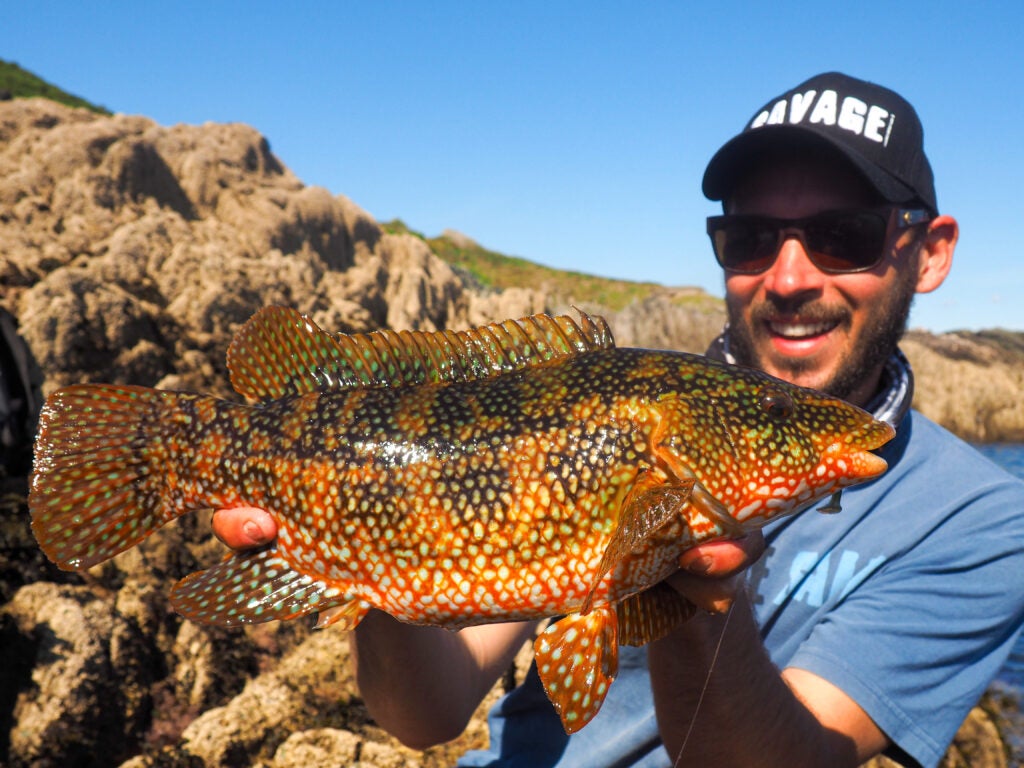The next mission
CHANGE OF SCENERY
As I mentioned previously I’ve been taking some downtime. I packed away the lure rods in exchange for a change of scenery. Over the past few weeks I’ve been enjoying some spring tench fishing. Targeting them my favourite way, on the float and ‘pin. The rivers also opened up for game fishing on the 1st. So I set out on some local chalk streams for wild trout. Fly fishing is something I really enjoy, it shares a similar technical approach with lure fishing. While the pike and perch are spawning and the sea still cold it really fills a void. I continue with my trout sessions throughout the season. I’ve always taken a traditional approach to the fly, this year I’m looking forward to trying some larger streamers. There are some huge fish out there that rarely appear in catch reports, and chasing one down is my mission. Anyway, spring is here and trout aren’t my only target.
A COASTAL JOURNEY
Over the last few years my love of coastal fishing has really grown. In the past I’ve fished in freshwater through and through. At least until I turned to bass. Bass began to capture my imagination years ago, however it wasn’t until I really started to figure them out that I became addicted. Amazed at how strong they fight in a fierce tidal rip, I spent long days hoping to connect with a giant. I managed fish to 9lb but that lure-caught double still eluded me. It’s a target I will keep setting out to achieve, and hopefully I can crack it. Early spring can be challenging for bass here. Wind, rain and cold conditions can switch fishing on and off, turning the sea to a muddy soup. Not my best opportunity to catch that double. Instead of targeting open coastline, my local estuaries will be my lifeline. While big bass are rare in these places, great numbers of schoolies can make an exciting session on the right tide. I’ve often found they come and go fast on the flood, and windows to catch them can be brief. On some venues you can almost follow them as they make their journey.
It’s a lot of fun. Fishing for estuary bass is crazy at times. I often use light kit, a perch set-up at around 3-15g cast weight and 13lb braid. At times when they’ve been small I’ve grabbed the 0.5-5g LRF (Light Rock Fishing) rod. A one pounder gives an amazing fight on such finesse tackle. Some of the estuaries run clear, while others are horribly muddy. But they all produce. The clear venues are easier to target with casting metals, hard lures and realistic shads catching most of the time. While the muddy water can be more challenging. Bright colours often work for me. Although around the top of the tide as the flow eases the colour often improves on the estuaries. This can trigger a feeding frenzy.
Hopefully, towards the end of the month, conditions will be more stable and the sea warm. Finally I can take on the task of tracking down some big coastal bass. Soft plastics and shallow hard lures will be my go-to approach. On tricky days long casting metals like the Surf Seeker will be a safe bet. I will be covering ground, rain or shine, walking and casting until I find the fish.
POWERHOUSE WRASSE
Once lockdown ends I hope to do my annual trip to the South coast. My goal will be to target wrasse and enjoy some LRF fishing. Wrasse are a species I really miss when I’m away too long. I was first introduced to them on a holiday with fishing friends. They are powerhouses that get your adrenaline going whenever you hook a decent one. They have a paddle like a tench, a saltwater attitude, and an eye for snags. When you hit a big wrasse it’s hit and hold, pushing the tackle to near breaking point. Not to mention they are one of the most amazing looking creatures I’ve seen. Fishing for them is a blast, walking miles, accessing remote places, being isolated. It’s a great experience. The gear is simple, heavy perch kit with weedless lures. Shads, creature baits and worms in the 2-4 inch range are perfect. The retrieve is almost similar too. Unfortunately, the wrasse love tackle graveyards, feeding and living in rough, rocky terrain. Be prepared to lose some kit.
The LRF (Light Rock Fishing) is the total opposite. Fishing tiny artificial lures in just about any kind of water for micro-species, some weighing little more than an ounce. It’s extremely fun, with so many unusual mini-species scattered around the coast, it’s often a mystery what you’ll pull out next. I’m fairly new to it, but there are anglers that really specialise in this style of fishing. For me it’s a fun way to pass time during the slow parts of the tide. Even a fairly small rock pool could be home to a mini-monster.
With UK holidays being the main option this summer, why not give the coastal fishing a go?
















